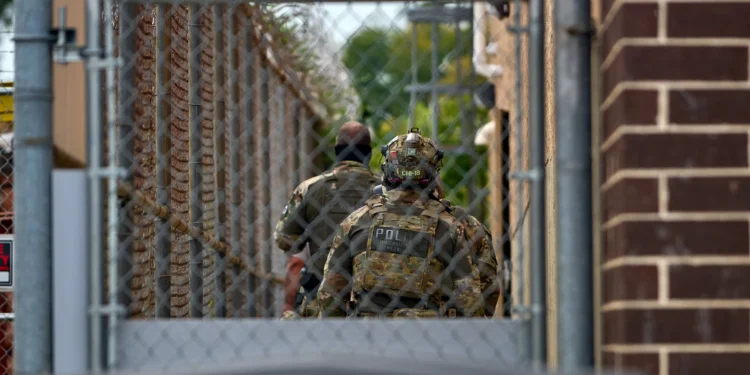Paramjit Singh, a 43-year-old man, is facing a terrifying reality. He is slowly going blind while being held in ICE detention. But what’s even more alarming is that the Department of Homeland Security (DHS) is trying to deport him for a forgery conviction, without producing any evidence of its existence.
Singh came to the United States from India in 1995 and has been living in the country ever since. He has a green card and has been a lawful permanent resident for over two decades. However, his life took a turn for the worse when he was arrested in 2017 for allegedly forging a document.
Despite having a clean record and being a contributing member of society, Singh was detained by ICE and has been held in a detention center in Georgia for over a year. During this time, he has been denied access to proper medical care for his deteriorating vision. Singh suffers from a brain tumor that has caused him to lose his eyesight gradually. He has undergone multiple surgeries, but his condition continues to worsen.
The situation is dire for Singh, who is now facing the possibility of being deported to a country he left over two decades ago. His family and friends are deeply concerned about his health and well-being, but their pleas for his release have fallen on deaf ears.
The reason for Singh’s detention and potential deportation is a forgery conviction. However, there is no record of this conviction in any database. His lawyer has repeatedly requested proof of the conviction from the DHS, but they have failed to produce any evidence. It seems that Singh’s fate is being decided based on an alleged crime that may not even exist.
The lack of evidence and the inhumane treatment of Singh by ICE raises serious questions about the agency’s practices. The fact that they are willing to deport a man with a serious medical condition, without any proof of his alleged crime, is deeply concerning.
Singh’s case is not an isolated incident. It is a reflection of the flawed and unjust immigration system in the United States. Countless individuals, like Singh, are being detained and deported without due process or proper evidence. Families are being torn apart, and lives are being destroyed.
The current administration’s aggressive approach towards immigration has only exacerbated the issue. The policies put in place by the Trump administration have made it easier for ICE to detain and deport individuals, often without proper justification. This has resulted in a surge of cases like Singh’s, where individuals are being targeted and punished without any concrete evidence.
It is time for the DHS to be held accountable for their actions. The agency must provide proof of Singh’s alleged crime and allow him to receive proper medical care. It is inhumane to detain and potentially deport a man who is suffering from a serious medical condition.
Furthermore, the immigration system needs to be reformed to ensure that cases like Singh’s do not happen again. The process of detention and deportation must be fair and just, with proper evidence and due process. Families should not have to live in fear of being torn apart, and individuals should not have to suffer in detention centers without proper medical care.
In the case of Paramjit Singh, the DHS has failed to provide any evidence of his alleged crime. This raises serious doubts about the validity of his detention and potential deportation. It is time for the agency to do the right thing and release Singh, allowing him to receive the medical care he desperately needs.
Singh’s story is a reminder that behind every immigration case, there is a human being with a family, a life, and a story. It is time for the United States to treat immigrants with compassion and respect, rather than treating them as criminals.
We must stand in solidarity with Paramjit Singh and all those who are facing similar injustices. We must demand accountability from the DHS and push for a fair and just immigration system. Let us not forget that we are a nation built by immigrants, and it is our duty to ensure that everyone is treated with dignity and humanity.





